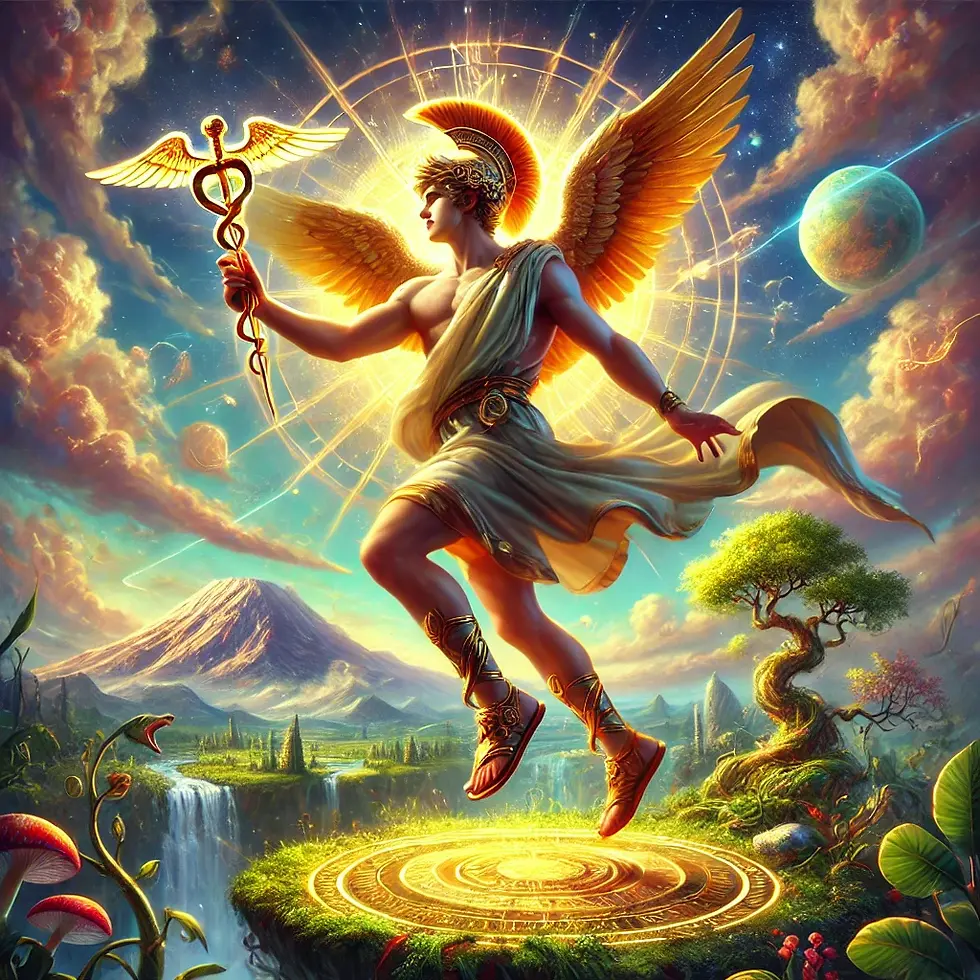The Birth of Hermes: A God of Mischief and Genius
- Santiago Toledo Ordoñez

- Nov 23, 2024
- 2 min read
On a quiet night, under the silver glow of the moon, Maia, a nymph from Mount Cilene, gave birth to a child unlike any other. Within hours of his birth, the little Hermes had already shown that he was an extraordinary god. Gifted with a lively intelligence and unmatched wit, his pranks marked the beginning of a legendary life.
That very night, while Maia slept, Hermes left the cave that protected him and embarked on his first great adventure. Upon reaching the meadow, he saw a herd of cows that belonged to Apollo. Eager to cause some chaos, Hermes stole a few cows, walking backward to confuse anyone who tried to follow his tracks. He even invented special sandals to leave no trace.
After hiding the cows in a safe place, Hermes found a turtle, and with his unique ability to turn the ordinary into the extraordinary, he created the first lyre by stretching the entrails of a cow over the turtle's shell. The sound it produced was so celestial that, later on, even Apollo was astonished.
When Apollo discovered the theft, he searched for Hermes, who, with the innocent pretense of a child, denied committing the crime. "Me, a baby? How could I steal cows?" he said with a mischievous grin. However, Zeus, his father, was not fooled. With a mix of admiration and reproach, Zeus ordered Hermes to return the cows. To appease Apollo, Hermes gifted him the lyre he had created. Apollo, enchanted by the instrument, forgave his half-brother, and thus a unique friendship between the two gods was born.
From that day on, Hermes was recognized not only as a trickster but also as a god of great talent and versatility. Impressed by his ingenuity, Zeus appointed him the messenger of the gods. With his winged sandals, Hermes could move between Mount Olympus, Earth, and the Underworld with incomparable speed, carrying messages and fulfilling missions that no other god could accomplish.
Hermes was not only the messenger; he was also the protector of travelers, merchants, and thieves, as well as the guide of souls to Hades. In one of his most famous missions, he helped Perseus defeat Medusa by giving him the winged sandals and a special sword.
Although his pranks never ceased, Hermes always had a deeper purpose: to be the bridge between worlds. His ingenuity, speed, and ability to adapt to any situation made him one of the most beloved and respected gods of Olympus.
Hermes was more than a god of trickery; he was the spirit of movement, communication, and creativity, proving that even the greatest pranks can lead to unforgettable achievements.




Comments